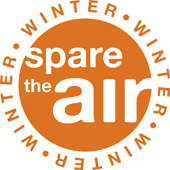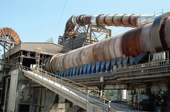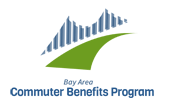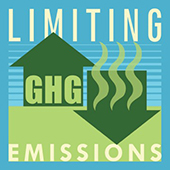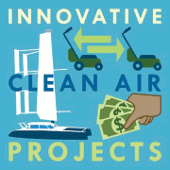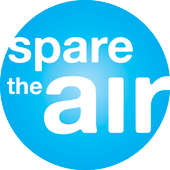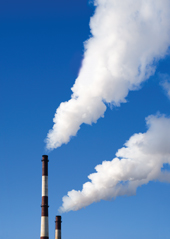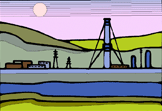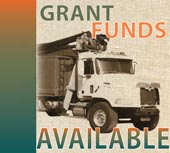|
|

|
|
|
|
November 2016 l Volume 2016-4
|
|
|
|
|
|
|
| | |
|
Welcome to the latest issue of the Bay Area Air District’s Air Currents newsletter. In this issue, you’ll find articles about the beginning of the Winter Spare the Air season and the end of the summer Spare the Air season, a series of workshops and open houses that will provide information on the Air District’s new draft rule designed to reduce toxic health risks, and the governor’s signing into law of the Commuter Benefits program. Other articles cover the Climate Forward Forum held at the Bay Area Metro Center, a couple of recent settlement agreements, a call for proposals for community grants and a summary of current grant opportunities.
|
|
|
|
|
|
|
|
|
|
|
|
|
Winter Spare the Air Season Begins
|
|
| | |
|
November 1 marks the beginning of the ninth Winter Spare the Air season since the Air District first passed its wood-burning regulation in 2008. Once again this winter, through the end of February 2017, it will be illegal to burn wood when the Air District issues a Winter Spare the Air Alert. On cold, still winter nights, pollution from wood smoke often gets trapped close to the ground in the Bay Area, causing it to accumulate in many neighborhoods. When pollution levels rise and air quality is expected to become unhealthy, the Air District will call a Winter Spare the Air Alert, banning wood burning.
Wood smoke is the number one source of wintertime air pollution in the Bay Area, and the wood-burning rule has been one of the Air District’s most effective tools in reducing wintertime fine particle pollution.
In October 2015, the Air District adopted a series of amendments to the wood-burning regulation in order to make it an even more effective instrument for protecting public health. These new provisions were designed to tighten exemptions and requirements in the original rule, and several of these provisions contain deadlines that go into effect November 1:
- Any Bay Area resident who wishes to claim a sole source of heat exemption from Winter Spare the Air Alert burn bans must do so by relying on an EPA-certified wood-burning or pellet-fueled device, and must register the device with the Air District. An open hearth fireplace will no longer qualify for an exemption.
- Any chimney or fireplace remodeling project in the Bay Area that costs over $15,000 and requires a building permit will only be allowed to involve installation of a gas-fueled, electric or EPA-certified device.
- No wood-burning devices of any kind may be installed in new homes or buildings being constructed throughout the Bay Area.
In order to further reduce wood smoke in the region, the Air District launched a $3 million incentive program this fall that offered funding for approximately 1,500 Bay Area households to upgrade their wood-burning devices with cleaner heating options.
Priority has been given to low-income residents, residents located in areas highly affected by wood smoke and households exempt from Winter Spare the Air Alert burn bans due to the fact that their wood-burning device was their sole source of heat.
This program launched on August 26, 2016, and all new applications received are being placed on a waitlist. Applicants on the waitlist will be notified if and when more funding becomes available.
To find out if a Winter Spare the Air Alert has been called, residents can call 1 (877) 4-NO-BURN, visit www.sparetheair.org, register online for automatic phone or email alerts, or download the iPhone or Android app. Winter Spare the Air Alerts will also be announced in the local media.
For more information about the Winter Spare the Air Program, visit www.sparetheair.org.
|
|
|
|
|
|
|
|
|
|
|
|
Air District Seeks Public Input on a Draft Rule to Reduce Toxic Health Risks
|
|
| | |
|
The Air District invites residents to provide input on a draft new rule that is designed to incorporate the latest public health guidelines and reduce health risk to local residents from toxic air contaminants emitted by facilities in the Bay Area.
Draft Regulation 11, Rule 18, Reduction of Risk from Air Toxic Emissions at Existing Facilities, was released for public comment on October 14.
This draft new rule would improve air quality and reduce toxic emissions from facilities ranging in size from large-scale plants like factories and oil refineries to smaller operations like back-up generators and gas stations. The Air District estimates that hundreds of facilities throughout the Bay Area may be subject to the proposed rule, which would incorporate recently adopted risk management guidelines and health risk values from the California Office of Environmental Health Hazard Assessment.
Under draft Rule 11-18, Air District staff would conduct site-specific health risk screening analyses for all facilities that report toxic air contaminant emissions, and calculate health prioritization scores based on the amount of toxic air pollution emitted, the degree of toxicity of these pollutants, and the proximity of these facilities to local communities. The Air District would conduct health risk assessments for facilities found to have a priority score above a certain value.
All facilities found to have a cancer risk in excess of 10 in a million or an acute hazard index greater than 1.0 would be required to reduce their risk below 10 in a million and their hazard index below 1.0, or install Best Available Retrofit Control Technology for Toxic Pollutants on all significant sources of toxic emissions.
Overall, Bay Area cancer risk from toxic air contaminants has been reduced by 87 percent since 1990, due to Air District and state air pollution control measures. This new rule would build on that progress and further protect public health, especially in areas that are disproportionately impacted.
A series of open houses/workshops will be held in November to provide information and opportunities for feedback on the new proposed rule. Two meetings to discuss the scope of the environmental impact report on Rule 11-18 (together with Rule 12-16, which sets limits on facility-wide petroleum refining emissions) will also be held in November.
More information can be found on the Air District’s Air District’s website. The public can submit questions or comments via email to Victor Douglas at vdouglas@baaqmd.gov. The public comment period closes on December 2, 2016.
|
|
|
|
|
|
|
|
|
|
|
|
Commuter Benefits Program Signed Permanently into Law
|
|
| | |
|
In September, Governor Brown signed a bill into law ensuring that many Bay Area employees will continue to receive financial incentives to get to work without driving alone.
Senate Bill 1128, which passed the state legislature without any opposition, authorizes the Air District and the Metropolitan Transportation Commission to jointly continue the Bay Area Commuter Benefits Program, a program that requires employers with 50 or more full-time employees in the Bay Area to offer commuter benefits to their employees.
Employers subject to the program are required by law to register via the program website, select a commuter benefit and offer their program to their employees. The goal of the program is to reduce greenhouse gas emissions and traffic congestion by using the federal tax code to encourage employees to commute by adopting alternatives to driving alone.
The Air District and MTC jointly developed the Bay Area Commuter Benefits Program as a pilot program in response to Senate Bill 1339, which was signed into law by Governor Brown in September 2012. The program is designed to give employers various options for compliance, including simply offering their employees the ability to pay for transit or vanpooling with pre-tax dollars, which can save both employers and employees money through lower taxes. The program was modeled on commuter benefit ordinances established in 2009 in San Francisco, Berkeley and Richmond, as well as at San Francisco International Airport.
Research shows that employees are more likely to consider alternatives to driving alone if they are encouraged by their employer. Employers can reduce vehicle trips to worksites by promoting alternative commute modes, such as transit, carpooling, bicycling, walking and telecommuting.
As of August 31, nearly 4,100 employers were enrolled in the program and approximately 1.3 million employees were receiving commuter benefits, primarily via pre-tax dollars. Close to 57 percent of enrolled employers had offered no commuter benefits to their employees prior to the program’s existence.
Employers subject to the Commuter Benefits Program will be notified by the Air District and must register at 511.org. Assistance is available through MTC's 511 Regional Rideshare Program to help employers comply with the program. Employers can visit 511.org and click on Bay Area Commuter Benefits Program to get more information or call 511 and say "commuter benefits" at the first prompt to connect to employer outreach staff.
Detailed information about the Commuter Benefits Program and employer requirements can also be found in the "Employer Guide" at 511.org.
|
|
|
|
|
|
|
|
|
|
|
|
Air District Hosts Climate Forward Bay Area: A Leadership Forum
|
|
| | |
|
About 300 attendees joined the Air District at the 2016 Climate Forward Bay Area: A Leadership Forum on October 13 and 14 at the Mission Bay Conference Center on the University of California at San Francisco campus. The Climate Forward Forum brought together technology, government, NGO and industry leaders to share ideas and approaches to reducing local greenhouse gases while maintaining economic viability.
A range of distinguished speakers including Mary Nichols, Dr. Chris Field, state Senator Fran Pavley, Cisco DeVries, Google’s Brendan Harrington and Green For All’s Vien Truong led a series of panels and plenaries on climate change-related topics. Topics included transportation alternatives, waste reduction, water use and more.
CNN Political Contributor and New York Times best-selling author Van Jones closed the conference with his keynote speech on the ways individuals can work together in the Bay Area to address the issue of climate change. The speech was broadcast live on the Air District’s Facebook page and can be viewed here.
|
|
|
|
|
|
|
|
|
|
|
|
Air District Calls for Community Grant Proposals
|
|
| | |
|
The Air District's James
Cary Smith Community Grants Program is currently accepting grant proposals for fiscal year 2017.
Open to community groups, non-profit agencies, schools, and individual teachers, the Air District is soliciting proposals for projects that will reduce air pollution by encouraging collaboration and direct community involvement in the protection of public health and the environment.
For this grant cycle, the Air District has set aside $250,000 to sponsor community science projects:
- $240,000 is available for research grants of up to $50,000 each that involve a qualified academic or research partner teaming up with a local community-based partner, and
- $10,000 is available for in-classroom direct small grants of up to $1,000 to support K-12 public school teachers who apply hands-on air quality science with their students.
Applications are currently being accepted and will be open until March 31, 2017, or until funding is expended.
The Air District held a Community Science Grant Program workshop on Thursday, October 20, at the Air District’s Bay Area Metro Center headquarters to enable prospective applicants to ask questions and bring their proposals. The community grant presentation and a recap of questions and responses addressed at the workshop are available upon request.
An overview of the program, along with guidelines and application forms, is available on the Air District website.
This program is named for the former Air District Community Outreach Manager who helmed the agency’s initial pilot community grant program in 2009-10. Mr. Smith passed away in 2015.
For more information, please contact David Ralston, Community Engagement Manager, at dralston@baaqmd.gov.
|
|
|
|
|
|
|
|
|
|
|
|
Record-Breaking Spare the Air Season Comes to an End
|
|
| | |
|
The Bay Area’s summer smog season has concluded, marking a record-breaking number of Spare the Air Alerts called during a single season.
The Air District called 27 alerts during the 2016 Spare the Air smog season, beating the previous record of 25 alerts set in 1996. A series of heat waves and smoke from wildfires, along with ever-increasing traffic, contributed to unhealthy air quality and led to the record number of alerts. The region exceeded the federal health standard for smog on 15 of those 27 days. The federal smog standard was strengthened by the U.S. EPA in 2016, in response to the latest scientific research.
This season the Spare the Air program celebrated its 25th year of improving and raising awareness about air quality in the Bay Area. Since 1991, the summertime program has focused on reducing ozone, or smog-forming pollution, during the warmer months. Spare the Air continues to encourage all Bay Area residents to reduce air pollution every day by rethinking their commute and avoiding driving alone. The campaign also promotes carpooling, taking transit, and walking and biking whenever possible.
Transportation is the largest source of smog pollution in the Bay Area, and single occupancy vehicles are the main contributors. The Spare the Air campaign encourages Bay Area residents to look for ways to share, shorten or change their commutes to reduce smog and traffic gridlock.
|
|
|
|
|
|
|
|
|
|
|
|
Air District Settles Case with Phillips 66
|
|
| | |
|
The Air District announced in August that the Phillips 66 Company agreed to pay $793,250 to settle air pollution violations at its refinery in Rodeo.
The settlement covered 87 Notices of Violation issued to Phillips 66 for non-compliance at its refinery from 2010 through 2014.
The violations that led to this settlement have been corrected.
Approximately one-third of the violation notices issued in 2010 stemmed from an unplanned refinery shutdown on October 22 of that year, a situation that resulted in two emissions violations and two violations related to heavy smoke from flaring.
The Air District issued three public nuisance violations in 2011 caused by odors from the refinery.
On June 15 and 16, 2012, the Air District cited Phillips 66 for a public nuisance and for numerous ground-level monitor excesses that resulted when a sour water tank ruptured, sending gases, including hydrogen sulfide, into neighboring communities.
The balance of the NOVs cited relatively minor issues: isolated, short-lived emission-related violations, such as brief violations of emission limits as measured by monitors on refinery equipment; missed or late source tests; Leak Detection and Repair program violations; or minor administrative violations.
All collected penalties will be used to fund Air District activities such as the inspection and enforcement activities that led to this settlement.
|
|
|
|
|
|
|
|
|
|
|
|
Air District Fines Value Plumbing
|
|
| | |
|
In August, the Air District announced that Value Plumbing Co., Inc., agreed to pay $310,000 in a settlement filed with the Superior Court of the State of California in the County of Contra Costa for installing uncertified residential water heaters in the Bay Area.
A complaint jointly filed by the Air District and the Contra Costa County District Attorney Mark Peterson alleged that the plumbing contractor purchased uncertified residential water heaters and installed them in hundreds of Bay Area homes, in violation of air quality regulations and unfair competition laws.
Water heaters sold or installed within the Bay Area are required to meet very stringent nitrogen oxide limits. Nitrogen oxides under the influence of sun and heat contribute to smog.
Although these water heaters are not compliant with air quality regulations in the Bay Area, there is no risk to residents who may have them in their homes.
The Air District’s rule requiring low nitrogen oxide emissions from water heaters is one among many designed to reduce the amount of smog-forming compounds emitted into the air from stationary sources within the nine-county regional boundary.
The $310,000 settlement comprises $100,000 in civil penalties paid to the Air District and $100,000 paid to the Contra Costa County District Attorney’s Office, as well as $110,000 to fund clean air quality projects.
Value Plumbing Co., Inc., owns and operates a construction and plumbing company in Oakley, California.
|
|
|
|
|
|
|
|
|
|
|
|
Air District Offers Millions in Grants
|
|
| | |
|
Carl Moyer Program - Funding is available for the upgrade or replacement of diesel engines and equipment, including trucks, off-road equipment, marine engines, locomotives and agricultural equipment. Applications are being accepted on a first-come, first-served basis until all funds are awarded. www.baaqmd.gov/Moyer Voucher Incentive Program - Funding is available for diesel truck replacements and retrofits. Applications are being accepted on a first-come, first-served basis until all funds have been allocated. www.baaqmd.gov/VIP
Lower-Emission School Bus Program - Funding is available for compressed natural gas school bus tank replacements. www.baaqmd.gov/LESBP
Coming soon! Heavy-Duty Zero-Emissions Vehicle Program – Funding will be available to both public and non-public entities who purchase or lease new zero-emissions heavy-duty trucks and buses. This program is scheduled to open in mid-November 2016. www.baaqmd.gov/HDZEV
Coming soon! Electric Vehicle Charging Station Program - Funding will be available to both public and non-public entities for projects that install electric vehicle charging stations at transportation corridor locations, workplaces, multi-family-unit dwellings and key destinations. This program is scheduled to open in December 2016. www.baaqmd.gov/charge
Coming soon! Plug-in Electric Vehicle Incentive Program (public agencies only) – Funding will be available to public agencies who purchase or lease zero- and partial zero-emissions light-duty cars, neighborhood electric vehicles and motorcycles. This program is scheduled to open in January 2017. www.baaqmd.gov/grant-funding/public-agencies/pev-rebate
Coming soon! Bikeways (public agencies only) – Funding will be available to public agencies for projects that construct or install new bikeways that support safe biking and walking and support a reduction in motor vehicle trips. This program is scheduled to open in December 2016. www.baaqmd.gov/grant-funding/public-agencies/bikeways-roads-lanes-paths
Residential Wood Smoke Reduction Incentive Program (accepting applications to the waitlist) - This program launched on August 26, 2016, and all new applications received are being placed on a waitlist. Applicants on the waitlist will be notified if, and when, more funding becomes available. This program provides funding to Bay Area homeowners and landlords to help offset a portion of the cost to replace older, more highly polluting fireplaces or wood-burning stoves with qualifying cleaner devices including electric heat pumps, and natural gas or propane heating stoves and inserts. Funding is also available to help homeowners decommission their working wood-burning fireplaces and non-EPA-certified wood stoves by permanently taking them out of service. www.baaqmd.gov/woodsmokegrant
|
|
|
|
|
|
|
|
|
|


